Kidney & Bladder Test For Cats
Kidney & Bladder Test For Cats
Already have a kit?
Activate kitEasy collection tools
Free home pick-up
Fast & clear results
activate. collect. mail. care.
How it works

activate 01.
Login to your Pet Portal, select a pet, and complete the pre - collection activation questions.

collect 02.
User-friendly tools allow you to gather a non-invasive sample from your pet, hassle-free.

Mail 03.
All our kits include a free at-home courier pickup & priority shipping to maintain sample quality.

Care 04.
Our diagnostic lab delivers fast results, easily shared with your vet, family, or pet care providers.


Ollie
AGE 5
URINE FUNCTION
CRYSTALS
A GOOD BOY!
THE PRECISION OF
Science
Our lab performs a full urinalysis of each urine sample. This includes using a refractometer for USG, urine reagent strips for chemical analysis, and centrifugation + microscopy of stained & unstained samples for urine sediment analysis.
WHAT'S INCLUDED?
Everything you need to collect & mail your pet's sample.
Dog kits include collection cups and an extendable pole to collect your sample mess free.
Cat kits include a hyrdrophobic litter which will allow urine to pool for easy collection.
Each kit also includes instructions, gloves, collection test tube, test tube labels, pipette, biohazard bag, return mailer bag with prepaid postage.
ACCURATE, FAST TESTING THAT YOU CAN COUNT ON
Our diagnostic quality tests follow the highest industry standards to ensure accuracy and reliability.
BACKED BY VETS
All our tests are designed by vets and follow trusted veterinary procedures.
Answers To
frequently Asked questions
What does this look for?
Our tests follow well established veterinary procedures (also called a Urinalysis) to screen pets for signs of disease and conditions such as urinary tract infections, endocrine diseases (such as diabetes), kidney disease, liver disease, and urinary crystals.
Why is this important?
Urine testing screens for chronic kidney disease (CKD), something that affects up to 80% of older cats and 25% of older dogs.
The sooner these diseases are identified, the sooner a treatment or management plan can be implemented to give your pet the best outcome possible.
Screening for urinary crystals and other factors in pet urine (such as pH and urine concentration etc.) can suggest the potential for bladder stone formation. Left undetected, bladder stones can cause recurrent urinary tract infections and potentially life-threatening urethra blockages in both cats and dogs. Certain breeds of dogs as well as male cats are more susceptible and face greater health risks from bladder stones.
Urine is often used to screen for diabetes mellitus. Left untreated, diabetes can result in diabetic ketoacidosis, a potentially life-threatening metabolic condition.
When should I screen?
Most veterinarians encourage testing your pet annually or even twice a year, and up to 4x per year for older dogs and cats.
Other than for wellness screening, your veterinarian may recommend a urinalysis if your pet has any of these signs:
-Change in urine frequency + volume
-Bladder accidents (peeing inside the house or outside the litterbox)
-Blood in the urine
-Straining to urinate
-Urinating small, frequent amounts
-Dribbling urine
-Painful urination
-Abdominal pain
-Frequently licking their genitals
What is the cost of not acting?
Routine urine screening can help mitigate:
-Prolonged pain and discomfort
-Severe urinary tract infections (UTIs)
-Kidney infections
-Electrolyte Imbalances
-Surgery for bladder stones
-Advanced chronic kidney disease
-Consequences of adrenal gland disease (Cushing's disease)
-Uncontrolled Diabetes leading to Diabetic
-Ketoacidosis
-Prostate disease (infection, inflammation etc)
-Bladder cancer or other types of cancer (rare cases)
-Hospitalization (rare cases)
-Death (rare cases)
Failing to test proactively can also have a large financial impact!
If your vet is concerned about advanced urinary issues with your pet, they may request a sterile urine collection which requires putting a needle directly into your pet’s bladder. This can cost $250 to $400.
If bladder stones are left unidentified until they have grown in size then surgery may be required. The total cost of surgery to remove bladder stones can range from $800 to $1,400 or more! Costs include x-rays or ultrasound, pre-anesthetic bloodwork, anesthesia and take-home medication.














